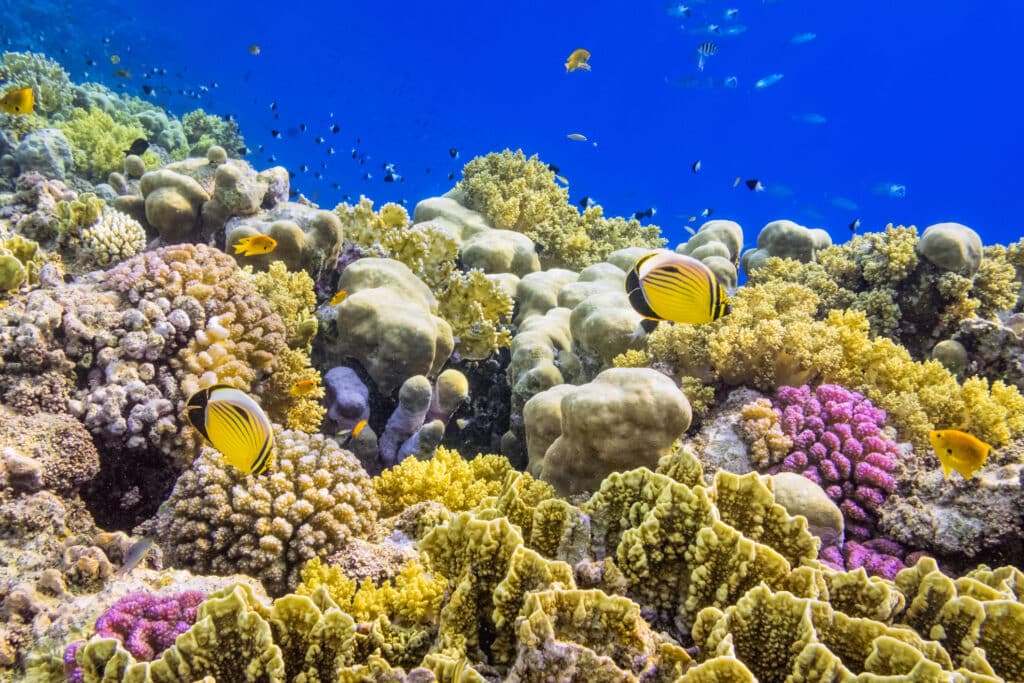How to Have an Eco-Friendly Summer
Summer is a great time to enjoy the great outdoors, and many of you will be eager to book your next holiday. It’s an exciting time, but having a good trip shouldn’t mean having to sacrifice our eco-credentials.
Since most forms of transport contribute to climate change, travelling can be highly polluting. However, that shouldn’t stop you from looking forward to a summer getaway – here are seven dos and don’ts to make your trip a little kinder to the planet.
What does eco-friendly mean?
By now, we’ve all heard of climate change and the devastating effect that it is having on the planet’s ecosystems.
Being eco-friendly means being conscious of your environmental impact, which ranges from proper recycling of waste all the way to modes of transport. While some things involved with going on holiday will harm the environment, like plane travel, there are still ways that you can minimise your impact on the planet.
How to be more eco-friendly this summer
Being more eco-friendly this summer is easy, and it doesn’t need to affect your enjoyment of the season, but following our tips below.
Going on holiday?
If you’re on holiday, you can take steps to minimise your environmental impact by heeding the advice we’ve put together below…
Choose your destination carefully
Did you know that you could reduce your holiday carbon footprint dramatically by choosing a destination that is closer to home? You can do so by flying short haul where possible, or even omit the idea of flying altogether and travel to your destination by train or car instead – but if that’s not possible, there are airlines that have higher occupancy rates and more efficient aircraft, so do your research.
Only buy essential items
It’s natural to get excited when you’re about to go away, and sometimes that build-up spills into buying items for your holiday… which, in most cases, is unnecessary! Buying a new bathing suit every year or a ‘fashionable’ outfit before every summer holiday is not sustainable for the planet (or your bank balance, for that matter). Instead, you should look at investing your money into timeless, well-made pieces that will last you for the next few summers to come.
We’d also recommend avoiding fast fashion that uses unsustainable and unethical methods to produce low-cost items that aren’t built to last.
Buy sustainable toiletries
Nothing dampens a beach day like sandflies and mosquitoes, so there are some things you really do need, and should not scrimp on, if you want to keep yourself safe in your summer holiday – things like sunscreen and insect repellent. Find ethical and eco-friendly alternatives to these items. Biodegradable plastic is a great place to start when looking for toiletries that are environmentally friendly.
Buy ethical souvenirs
Buying souvenirs, trinkets, knick-knacks, and gifts as tokens of memory during your travels is all well and good, but you should definitely watch what you buy when abroad! In many countries, wild animal products are often marketed to tourists as popular souvenirs, so think twice before you buy any products made from endangered species, including animal hides and body parts, ivory, reptile skin, coral, and so on – because they could be illegal.
Eco-friendly travelling tips
It’s not just what you buy for your holiday; your travel arrangements can have a significant impact on the environment, maybe without you even noticing.

Always purchase e-tickets
Many booking services offer electronic tickets on your phone or tablet (did you know that we offer e-tickets?) rather than printing them on single-use paper, which you should definitely take advantage of! This may not sound like much, but if you’re planning for an activity-filled holiday jam-packed with travels and hotel bookings, all the tickets and booking confirmations can add up to a stack of paper waste, which can be easily avoided by simply tapping the ‘e-ticket’ option. Not to mention it helps you keep all the paperwork in one place and it won’t require access to a printer.
Pack as light as possible
Heavier planes leave larger carbon footprints. On the other hand, travelling with lighter baggage reduces fuel emissions, plus it will help you save on additional baggage costs, carriage costs, and you’ll have fewer things to worry about carrying and guarding.
It’ll also save you time if you opt for carry-on luggage during a flight.
Use public transport
Using public transport on holiday is not only a great way to save money, but it’ll also help you to save the planet. By jumping on a train or a bus, you’re contributing less to emissions than if you’d order a taxi.
Depending on where you go, public transport might even be quicker and more efficient than taking a privately hired vehicle.
Sustainable summer plans advice
Even if you don’t plan to travel, there are still ways for you to have an eco-friendly summer. Let’s take a look at how your summer plans can be achieved sustainably.
Pack reusable items
Reusable items mean fewer pollutants going into the atmosphere during the production process and also less going into landfills once they’re done, particularly when compared to single-use items.
Avoid things like disposable bottles by investing in high-quality reusable bottles. The same can be said for bags and food containers. Remember, if it’s not reusable, it’s probably not eco-friendly.
Purchase quality decorations and reuse them
Barbecues are great, and you obviously want your garden to look great during it, but is it worth buying cheap decorations you’ll use once? Things like paper plates that end up in landfill aren’t great for the environment, and aren’t necessary to have a great barbecue.
Instead, invest in plates/cups/cutlery that can be reused outdoors, alongside decorations that have a life outside of your one-off plans.

Recycle and bin rubbish correctly
Rubbish is unavoidable, but we can reduce the impact it has on the environment by recycling it properly, so that it can be repurposed in the future.
Not everything can be recycled, so if you’re unsure, it’s best to avoid trying to recycle it. Wishcycling (the practice of putting items in the recycling bin with the hope they are recyclable, even if there’s no certainty) is more damaging to the environment than simply placing the items in the rubbish bin.
Besides, recycling can be fun if you get creative with it.
Purchase an energy-efficient BBQ
As we’ve said countless times, we love a barbie! Purchasing an energy-efficient, multi-use barbecue that uses electric or propane is far better than purchasing disposable barbecues multiple times over the summer.
On top of this, you can reduce your carbon footprint by going vegan for options like burgers and sausages! They’re just as delicious and less harmful to the planet.
Summer household considerations
Even during the summer, you’re probably going to be spending a lot of time indoors, so here are some tips for lessening your impact on the environment.
Hang your washing outside to dry
During the summer, there’s very little reason to use your dryer to dry your clothes. The mild air and summer breeze will dry your clothes in as little as an hour if the weather is right. Just be sure to keep an eye on the weather forecast because British weather is famously fickle.
Take cooler showers
It’s not only a great way to cool down, a cool shower is also kinder to the environment by using less energy to heat up the water.
As well as taking cooler showers, you should also aim to take shorter showers to reduce your environmental impact.
Conserve and reuse water
Speaking of water, you can use water from a paddling pool to water the plants rather than pouring it down the drain.
It’s also a good idea to use a bucket to clean your car rather than the hose, helping you to conserve water.
Invest in solar lights
Not only do solar lights look great, but they’re also free to run, and they’re better for the environment than lights that require an active source of electricity. They’re also usually not much more expensive than battery or wired lights, so what’s stopping you?
When it comes to taking an eco-friendly trip, simple things make all the difference when added together. We hope our tips have made you realise how easy it is to take care of the environment without sacrificing your ethics, all while absorbing truly beautiful surroundings.



